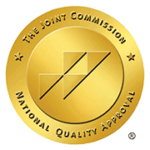Depression in Teens: Warning Signs and Treatment Options

For many of us, teenage years are a difficult time. It’s a period of your life when everything seems to change – school, your body, and often how you feel about yourself, your family, and your friends.
If you’re a teen, you may notice yourself having a shorter fuse than normal, or wanting more independence and choice over your decisions than you used to have. If you’re an adult supporting a teen, you have likely picked up on changes in their behavior and emotions, too.
But what if a teen seems to be experiencing more than the usual feelings of sadness? Or do the bad days begin to outweigh the good? This could be a sign of an underlying mental health condition, such as depression.
Depression affects around 1.5% of teens aged 10-14 years old and 3.5% of 15-19 year olds.1 It can leave teens with a low mood in mild cases, or experiencing thoughts of suicide in more severe cases.
If you are a teen struggling with depression or know a teen who may be, know that it is possible to recover. With a comprehensive treatment program to support them, they can begin to get more enjoyment and fulfillment out of life.
To answer all of your questions on depression in teens, this page will cover:
- What depression in teens is
- The causes of teen depression
- Warning signs of depression in teens
- Treatment options available for teen depression
- How to help a depressed teenager
What Is Teen Depression?
Teen depression is a serious mental health condition that affects how a teenager thinks, feels, and behaves. It goes beyond typical teenage stress or mood swings and can persist for weeks, months, or sometimes even years. Teen depression also significantly impacts every area of a teen’s life, including their relationships, daily functioning, and academic performance.2,3
There are multiple types of depression that teens can face, such as:
- Major depressive disorder
- Persistent depressive disorder
- Bipolar disorder
- Disruptive mood dysregulation disorder
- Seasonal affective disorder
- Atypical depression
- Premenstrual dysphoric disorder
Each type of depression has a unique set of symptoms, which we’ll touch on shortly. If you are a teen or have a teen in your life who may be struggling with depression, it’s important to understand which type of depression they may have, as this will influence how they manage their symptoms, the support you give, and the treatment approach that’s right for them.

What Causes Teen Depression?
If you’re a parent of a teen who’s struggling with depression, you may be quick to blame yourself. But we want you to know that it’s never, ever that simple. Depression in teens can come about from various factors, such as:
- Underlying mental health conditions4
- Having a family member with depression5
- Traumatic childhood experiences6
- Developmental conditions such as autism spectrum disorder (ASD) or attention deficit hyperactivity disorder (ADHD)7
- Being a member of the LGBTQIA+ community8
Generally, many factors interlink to contribute to teen depression – there isn’t a singular cause.
Signs of Depression in Teens
Depression manifests differently in each teen. One teen may experience mild symptoms of depression that show up as a low mood, while another may find it difficult to even get out of bed. Let’s go through the emotional and behavioral signs of depression in teens.
Behavioral Symptoms of Depression in Teens9
Teen depression often reveals itself in their behaviors. A teen with depression may, for example:
- Continually feel tired or exhausted
- Have trouble sleeping or sleep a lot of the time
- Show less interest in their appearance or hygiene than normal
- Withdraw from their friends or family
- Get into more arguments with their friends and family
- Have poor school performance or are absent often
- Be much more or less hungry than normal, perhaps shown through sudden weight loss or gain
- Regularly complain of physical illnesses such as headaches and stomach pains
- Show risk-taking behaviors (self-harm, for example)
Emotional Symptoms of Depression in Teens9
Teen depression also shows up through a teen’s emotions. For example, teens struggling with depression might:
- Feel hopeless and sad
- Become suddenly overwhelmed and tearful, or report feeling “empty”
- Get no enjoyment out of hobbies and activities they used to love
- Become irritated or angry without warning and for seemingly minor reasons
- Demonstrate a low sense of self-worth, such as believing they’re bad at everything or a horrible person
- Say they feel no emotions at all, or that they feel numb
- Struggle to make a decision
- Have thoughts of harming themself or death
- Find it difficult to solve problems or concentrate
- Blame or criticize themselves for small things
- Show signs that they believe the future seems unexciting or “bleak”
Treatment Options for Depression in Teens
Seeking help for teen depression can be overwhelming, especially when you’re not sure what to expect. But getting the right support doesn’t have to feel scary. Multiple treatment options are available to help teens explore their emotions, develop coping strategies, and begin to heal.
The most common treatment approaches for teen depression include psychotherapy and, in some cases, medication. While antidepressants may help with moderate to severe depression, therapy is often the first-line approach, offering a lower-risk way to manage symptoms, without potentially nasty side effects.
Types of therapy often recommended for teens with depression are:
Cognitive Behavioral Therapy (CBT):
Helps teens challenge their negative thoughts and develop healthier thinking patterns.
Group Therapy:
Provides peer support, reducing isolation and improving a teen’s connection with like-minded people their age.
Family Therapy:
Improves communication and strengthens relationships to create a more supportive home environment. A healthy home environment can form the foundation for teens struggling with depression, helping them get back on their feet.
Interpersonal Therapy:
Helps teens recognize their relationship problems and identify how these impact their lives in different ways, including their mental health.
Eye Movement Desensitization and Reprocessing (EMDR):
Using specific eye movements and recollecting thoughts and memories, EMDR can help teens process any traumatic experiences that may contribute to their depression.
Medication can also prove effective for some teens who are struggling with depression. However, the type of medication recommended will be based on their age and symptoms. The two main forms of medications for teens with depression are selective serotonin reuptake inhibitors (SSRIs) and mood stabilizers. It’s important to speak to a doctor about each line of treatment, as they can help guide you to the right treatment for the teen.
At Mission Connection, we get to know each teen before recommending a comprehensive treatment program. This may include one of the therapy options mentioned above, as well as medication management and coping skills training.
We offer in-person therapy support for teenage depression at one of our treatment centers in California, Virginia, or Washington. Alternatively, we offer online therapy sessions for teens aged 12-17 who prefer to stay at home.
How to Help a Teen With Depression
Every teen experiences depression differently. Some may openly express their feelings, while others may keep them bottled up. You don’t have to wait until their depression symptoms worsen to check in with a teen about their mental health. Creating a safe space for an open chat can help them feel seen and supported.
Here’s how you can help a teen with depression:
1. Choose the Right Time
You may feel words bubble up in angry moments or times when you and your teen are feeling stressed. However, it’s important to remember that choosing the right time is just as essential as what you choose to say.
Choose a calm, private setting, such as a relaxed day at home or a walk to ask about how they’re feeling. If talking face-to-face feels too intense for both of you, a text or call is okay, too.
2. Prep Ahead of Time
It can help to think about what you want to say to a teen who’s struggling with depression ahead of time. This way, you’re not worried about what to say, and you can focus wholeheartedly on listening to their response. You could start the conversation by saying: “I’ve noticed you haven’t seemed like yourself lately. I’m always here if you want to talk.”
3. Listen and Validate Their Feelings
If a teen is willing to share what’s going on for them, be sure to pay full attention and avoid distractions. Put your phone to one side, face them, and show them you’re listening.
If you’re not sure how to respond when they tell you how they’ve been feeling, you can start by saying, “That sounds really tough – how are you feeling about it?” Then, when they share their feelings, be sure to validate them. You can do this by saying something like, “It makes sense why you’d feel that way.” or “It’s okay to feel that way.”
4. Encourage Them to Seek Support
If they’re not already receiving support for depression, it can be helpful to gently encourage them to get professional help. However, you need to be careful here, as this can be a sensitive topic. You can start by asking what they would like from you, and if there’s any help you can give. Then, you can ask if they think support from a mental health professional might help.
If your teen seems reluctant to talk or becomes upset during the conversation, that’s okay. It can be tough for any of us to talk about our emotions, especially when we’re going through a hard time. Be patient, give them some space, and show them that you’ll be there for them, regardless of if they try to push you away or don’t feel like sharing.
Find Treatment for Depression in Teens
Depression in teens can have an impact on a teen’s life, as well as their family and friends. If you’re supporting a teen with depression, it’s normal to struggle to know what to say or do, especially as you want to help them feel better in any way you can.
Fortunately, a teen who’s struggling with depression doesn’t have to do so on their own. Reaching out to a mental health treatment provider, like the team at Mission Connection, can help a teen and their family feel less alone and more equipped to handle what depression throws at them.
At Mission Connection, we offer a range of treatment approaches to support teens. We also offer flexible scheduling, allowing teens to keep their school and personal commitments. Plus, we work with insurance companies to ensure teens can get the support they need, regardless of their financial status.
If you or a teen in your life needs support with depression, don’t hesitate to reach out. We’re here to help. Get in touch at 866-938-4893 or get started here.
References
- World Health Organization. (n.d.). Adolescent mental health. World Health Organization. Retrieved February 17, 2025, from https://www.who.int/news-room/fact-sheets/detail/adolescent-mental-health
- American Psychological Association. (n.d.). Depression. https://www.apa.org/topics/depression
- American Psychiatric Association. (n.d.). What is depression? https://www.psychiatry.org/patients-families/depression/what-is-depression
- Beesdo, K., Hofler, M., Leibenluft, E., Lieb, R., & Pine, D. S. (2009). Anxiety and depression in children and adolescents: Developmental trajectories, transmission, and treatment. Biological Psychiatry, 65(8), 603–614. https://doi.org/10.1016/j.biopsych.2008.08.032
- Brent, D., & Maalouf, F. Depressive disorders in childhood and adolescence. 874-892. https://doi.org/10.1002/9781118381953.ch63
- Yin, W., Pan, Y., Zhou, L., Wei, Q., Zhang, S., Hu, H., Lin, Q., Pan, S., Dai, C., & Wu, J. (2022). The relationship between childhood trauma and depressive symptom among Zhuang adolescents: Mediating and moderating effects of cognitive emotion regulation strategies. Frontiers in Psychiatry, 13, 994065. https://doi.org/10.3389/fpsyt.2022.994065
- Hardan, A., & Sahl, R. (1997). Psychopathology in children and adolescents with developmental disorders. Research in Developmental Disabilities, 18(5), 369-382. https://doi.org/10.1016/S0891-4222(97)00016-4
- Wright, M. F., Wachs, S., & Gámez-Guadix, M. (2022). The role of perceived Gay-Straight Alliance social support in the longitudinal association between homophobic cyberbullying and LGBTQIA adolescents’ depressive and anxiety symptoms. Journal of Youth and Adolescence, 51, 1388–1396. https://doi.org/10.1007/s10964-022-01585-6
- Mayo Clinic Staff. (n.d.). Teen depression: Symptoms and causes. Mayo Clinic. Retrieved from https://www.mayoclinic.org/diseases-conditions/teen-depression/symptoms-causes/syc-20350985





